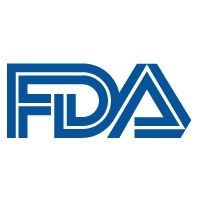Article
FDA Approves New Topical Gel Treatment for Acne Vulgaris
Author(s):
Onextron (clindamycin phosphate and benzoyl peroxide), 1.2%/3.75%, has been approved for the once-daily treatment of comedonal and inflammatory acne in patients 12 and older.

Valeant Pharmaceuticals International, Inc. announced today that the US Food and Drug Administration (FDA) has approved Onextron (clindamycin phosphate and benzoyl peroxide), 1.2%/3.75%, topical gel for the once-daily treatment of comedonal (non-inflammatory) and inflammatory acne in patients 12 and older.
According to Valeant, Onextron Gel is “the first and only FDA-approved fixed combination 1.2% clindamycin phosphate and 3.75% benzoyl peroxide medication for the once-daily treatment of comedonal (non-inflammatory) and inflammatory acne.”
These forms of acne (also known as acne vulgaris) are a common skin disorder that affects 40 to 50 million people in the United States.
The FDA granted approval based on safety and efficacy data from a pivotal vehicle-controlled trial clinical involving 498 patients with moderate to severe acne. After 12 weeks, treatment with Onextron Gel reduced non-inflammatory lesions by a mean of 52% vs. 28% in the vehicle arm, “for a mean absolute reduction of 19 vs. 10, respectively.” Treatment with Onextron Gel also reduced inflammatory lesions by a mean of 60% vs. 31% in patients receiving vehicle, for a “mean absolute reduction of 16 vs. 8, respectively.”
Nearly twice as many patients in the Onextron Gel group experienced treatment success (35% vs. 17%) compared to the vehicle group. Treatment success in the study was defined as at least a 2-grade improvement in the Evaluator Global Severity score from baseline.
Side effects reported during the study were comparatively rare (less than 1% of patients reported any side effects) and mild, with the most common being burning sensation, dermatitis contact, pruritis, and rash.
Some patients using other combination clindamycin/benzoyl peroxide products have experienced serious side effects, including colitis and allergic reactions.
Patients who are being treated with Onextron Gel who have difficulty breathing or experience severe watery or bloody diarrhea, severe itching, or swelling of the face, eyes, lips, tongue, or throat should stop treatment and consult a physician immediately.
Joshua Zeichner, MD and Director of Cosmetic and Clinical Research, Department of Dermatology, Mount Sinai Hospital, said Valeant encourages people with acne to visit a dermatologist or other healthcare professional for treatment, and that Onextron Gel is “an effective topical medication, appropriate for patients with a wide range of acne and has a favorable tolerability profile.”




